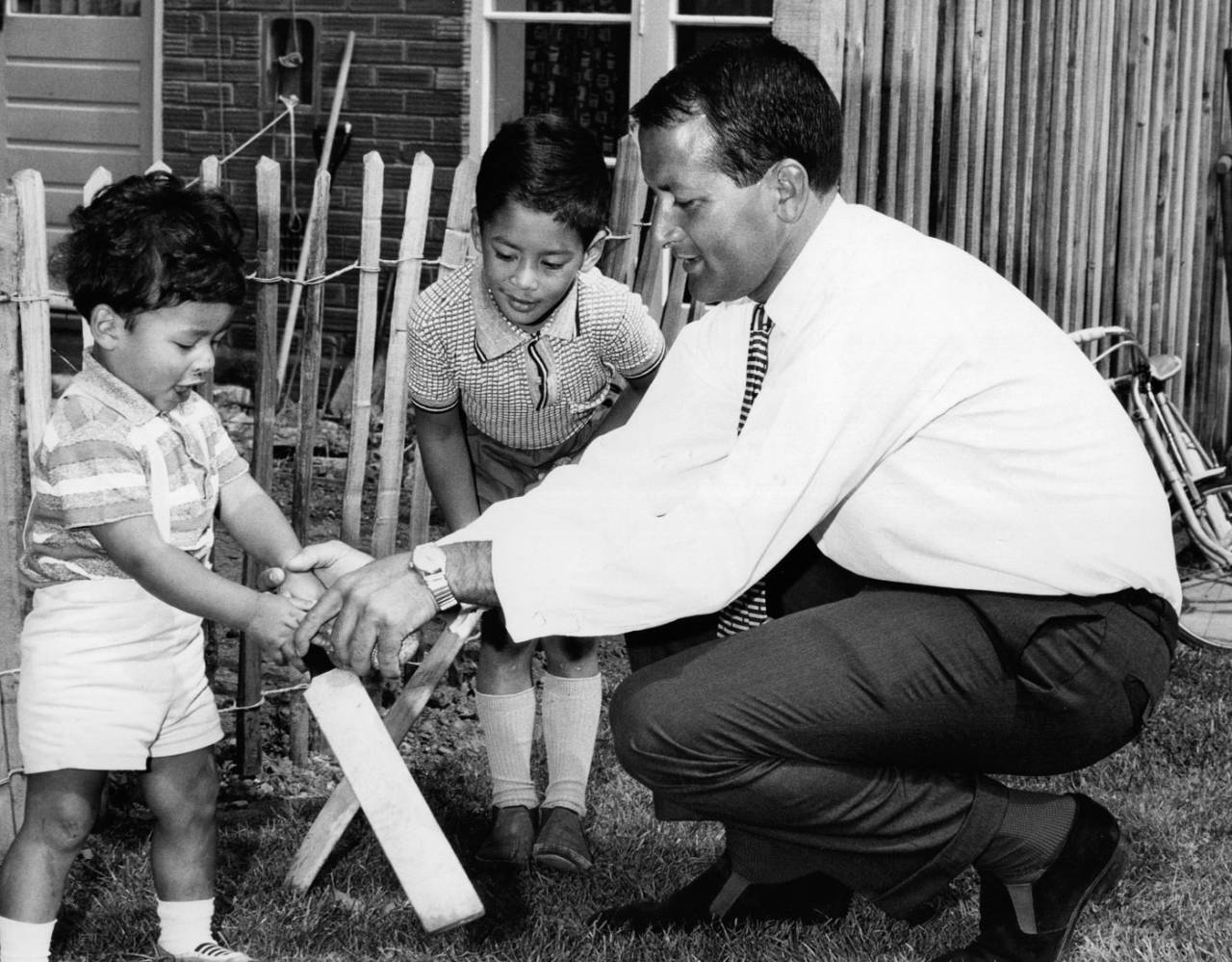Fifty-six years ago almost to the day, a shy Cape Coloured cricketer boarded a Cape Town flight bound for Heathrow. He had never flown further than Nairobi before and was petrified, his angst sharpened by the fact that Cape Town had shut down in the preceding days due to a march by 30,000 Pan Africanist Congress members protesting against the rule that natives needed to carry passbooks. The march went off peacefully thanks to the leadership of a 23-year-old first-year university student called Philip Kgosana. Memorably, he was wearing short pants because his wardrobe consisted of too-small shoes, donations and hand-me-downs. No rakish beard or artfully angled beret for Kgosana. The revolution will be conducted by men in short trousers.
Basil D'Oliveira was similarly impecunious. He was flying to England after bagging a contract with Middleton in the Lancashire League thanks to the generosity of strangers. Neither he nor Middleton could afford the flights, and so began a series of raffles, fundraisers and occasional matches held in leafy suburban subterfuge. Wes Hall, Middleton's pro during the previous season, wasn't given a leave of absence by his employers, Cable and Wireless, and D'Oliveira found himself with an unlikely contract. He was loath to leave his young wife, Naomi, in the Bo-Kaap (Upper Cape) behind, but as frightening as this opportunity was, he needed to take it.
Frank Worrell had almost brought a West Indian side to South Africa the previous year, although at the last minute the tour was cancelled. D'Oliveira sensed the noose of world opinion was tightening around apartheid's neck. The Sharpeville Massacre was nine days old. It was now or never.
Within nine months, Kgosana had fled the country; within a year or two he was jumping out of a transport aircraft for the Ethiopian Air Force. Within six, D'Oliveira was playing cricket for England. How quaint to consider that these men, both largely forgotten, who spent large portions of their lives outside of South Africa, metaphorically brushed against each other as part of history's swirling tide. D'Oliveira wasn't politically aware; Kgosana had no feeling for cricket. Yet the two tell a story of sacrifice and striving congruent with the decade. Their tales read like fiction.
Two days ago I spent the morning looking for traces of D'Oliveira in the Bo-Kaap and the simple double-storied house in which he grew up. There seemed to be no unanimity from the folk on Upper Bloem Street (becoming Voetboog St and intersecting with Pentz) as to whether the D'Oliveiras lived at 21 and 23, but finally we settled on 23, painted a soft apricot next door to the emerald-green 21. The mildly curious citizens of Upper Bloem were more certain that D'Oliveira played on a makeshift pitch where houses stand today, breaking windows and troubling the neighbours. "There was sort of like a concrete pitch here," remembers Shafiek Allie, who lives at 24 Upper Bloem. "We used to play here and slide all the way down to Pepper Street on [flattened] cardboard. It was fun times."
How quaint to consider that these men, both largely forgotten, who both spent large portions of their life outside of South Africa, metaphorically brushed against each other as part of history's swirling tide
Four generations of Allies have been associated with the Ottomans Cricket Club, founded in 1882.
Peter Oborne's moving book on Dolly suggests that Ottomans, a Muslim club, rejected D'Oliveira's application for membership based on the fact that he was a Roman Catholic. Allie very much doubts this, although it was interesting to find out that the house in which D'Oliveira grew up was probably owned by the Catholic Church. The last row of dwellings before the sun-dashed veld of Signal Hill would have been a form of subsidised housing. "Remember, Upper Bloem was a little dirt road in those days," says Allie. "Nobody had cars except for Mr Raynold, I think his name was, he had a black Hillman. I think he was a funeral-parlour director or something. He was always wearing black."
As I asked questions and tried to nail down facts, I found myself wondering why the Bo-Kaap community - and the city of Cape Town - haven't made more of the D'Oliveira legacy. There are no blue plaques or guided tours. One of the joys of Oborne's book is his sensitivity to D'Oliveira's nurturing community. He makes the point that those marginalised tend to support and promote their sons through almost excessive expressions of loyalty. As a result, D'Oliveira played for all of them, although he was, of course, turning out for England. In this time of easy amnesia, it would be heart-warming to see some recognition for D'Oliveira. The series just past between South Africa and England was for the D'Oliveira Trophy, after all.
Not that you would have known it from the officials and the suits.
